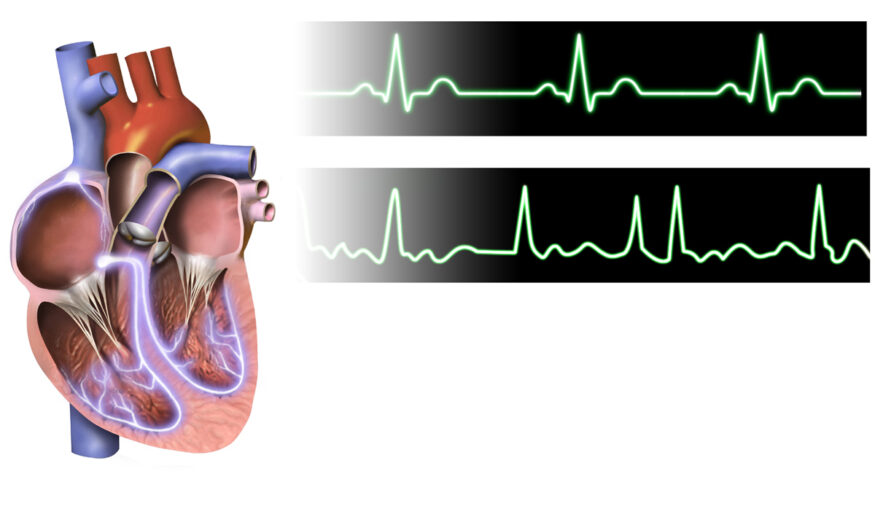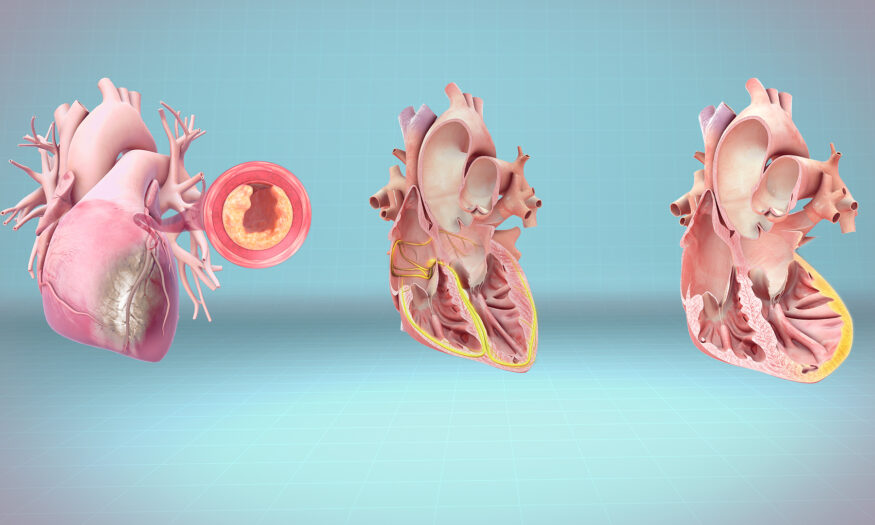Heart Health
Cardiovascular disease is the top killer of women in the United States–causing about one in five female deaths–and one of the leading causes of death for women throughout the world. More specifically, heart disease is the leading cause of death for Black and white women in the United States. Among American Indian and Alaska Native women, heart disease and cancer cause roughly the same number of deaths...
Cardiovascular disease is the top killer of women in the United States–causing about one in five female deaths–and one of the leading causes of death for women throughout the world. More specifically, heart disease is the leading cause of death for Black and white women in the United States. Among American Indian and Alaska Native women, heart disease and cancer cause roughly the same number of deaths each year. For Latinx and Asian or Pacific Islander women, heart disease is second only to cancer as a cause of death. In addition, large numbers of women suffer from heart disease and related conditions, even when those conditions aren’t fatal.
From palpitations to heart failure, women are misdiagnosed and mistreated relative to men. Due to discrimination and our lack of universal health coverage, racial and class disparities in diagnosis and treatment are nearly universal in the U.S. For example, women’s heart attacks are misdiagnosed at high rates: women may be sent home from the ER with anti-anxiety medications or ibuprofen when they have in fact had a heart attack. This is in large part because women’s hearts are not exactly like men’s, and are affected by the menstrual cycle, stress, pregnancy, menopause, and other factors in ways that are sex-specific. Women are more likely to have certain types of heart attacks that go undetected with standard diagnostic tools. Sexist stereotypes of women as susceptible to psychosomatic symptoms may also play a role in the prevalence of misdiagnosis. Yet medical research and training continue to be based on a male model.
For many women, our pervasive culture of dieting and fatphobia interferes with our heart health, both in terms of how the medical system treats us, and how we take care of ourselves. Women of all ages are exhorted to lose weight and “be healthy,” but we get conflicting messages about what is healthy and how to get there, and most of these messages do not help us to actually keep our hearts healthy. Rather, many are based in diet culture and sexist prejudice, rather than in medical research or best practices. In addition, the cultural phobia about being fat causes women to adopt methods for getting thin that are actually bad for our hearts. Diet pills, crash diets, fad diets, yo-yo dieting, bulimia, compulsive eating, and anorexia, have all been shown to negatively affect women’s heart health.
More than in any other section, the Heart Health subject area relies on the gender binary opposing men and women. Research into heart health has almost never looked at gender categories outside of this binary. We are deeply committed to updating this section as new, gender-expansive research and resources emerge.
Several important questions guide our research into women’s heart health. What is actually known, and evidence-based, about women’s cardiovascular health and how to maintain it? How do diet and exercise actually contribute to heart health or exacerbate cardiovascular problems? What other forms of prevention are most effective for women at different stages of our lives? How can we resist exhortations to “diet” and “lose weight” that are not beneficial to our health? And how can we best advocate for ourselves and our loved ones?
Advocating for Yourself
-
15 items
View allGet the most out of your doctor's visit or hospital stay and make sure your questions are answered.
Heart Disease
-
13 items
View allThe term "cardiovascular disease" includes all problems that affect the heart and blood vessels in the body.
Heart Health & COVID-19
-
4 items
View allEven though cardiologists and patients are still learning about COVID-19, the virus can present serious concerns for people with underlying heart issues.
Heart Health & Prevention
-
19 items
View allCardiovascular disease remains the number one cause of death in the US, but there are things we can do to lower the risks for ourselves and our communities.
LGBTQIA Heart Health
-
7 items
View allLGBTQIA+ folks may experience heart health disparities linked to social stigma and discrimination.
Myths about Cardiovascular Health
-
6 items
View allMany myths abound about heart disease and gender, age, and health. Here, we break down many of these misconceptions.
Pregnancy & Postpartum Heart Health
-
7 items
View allPregnancy-related changes in hormones and blood volume can sometimes lead to complications including gestational diabetes and high blood pressure.
Racial & Class Impacts on Heart Health
-
5 items
View allHeart disease disproportionately affects some populations more than others due to structural inequities that affect heart health.
Women & Heart Health
-
11 items
View allOnce thought of as a "man's problem," heart disease is now widely recognized as the leading cause of death in people of all genders.


















